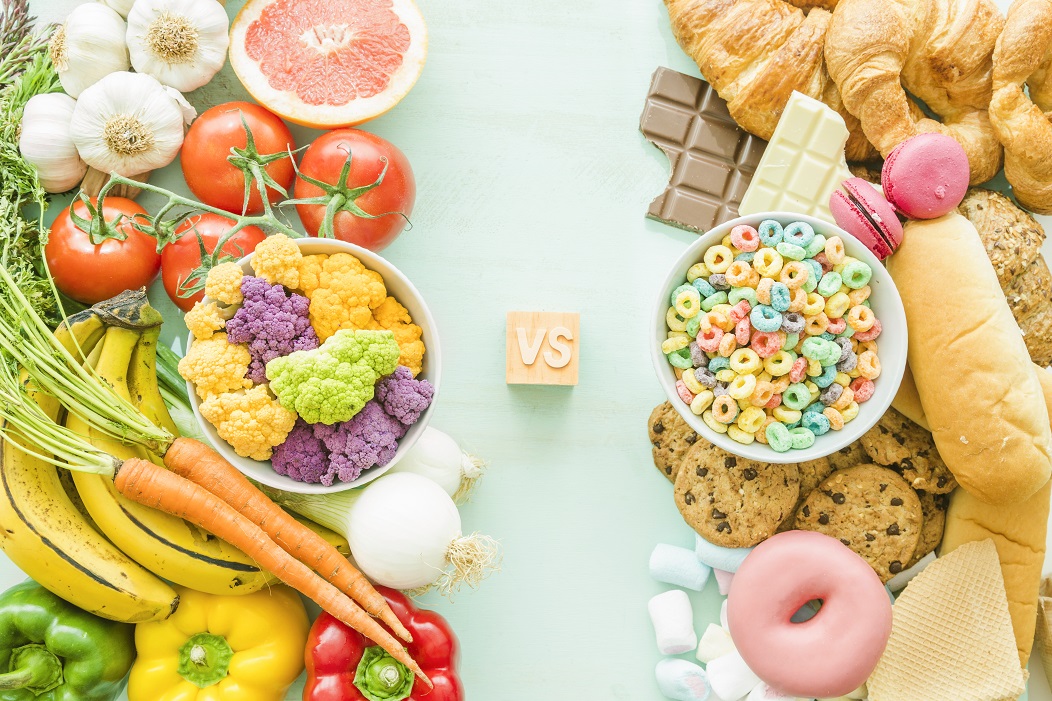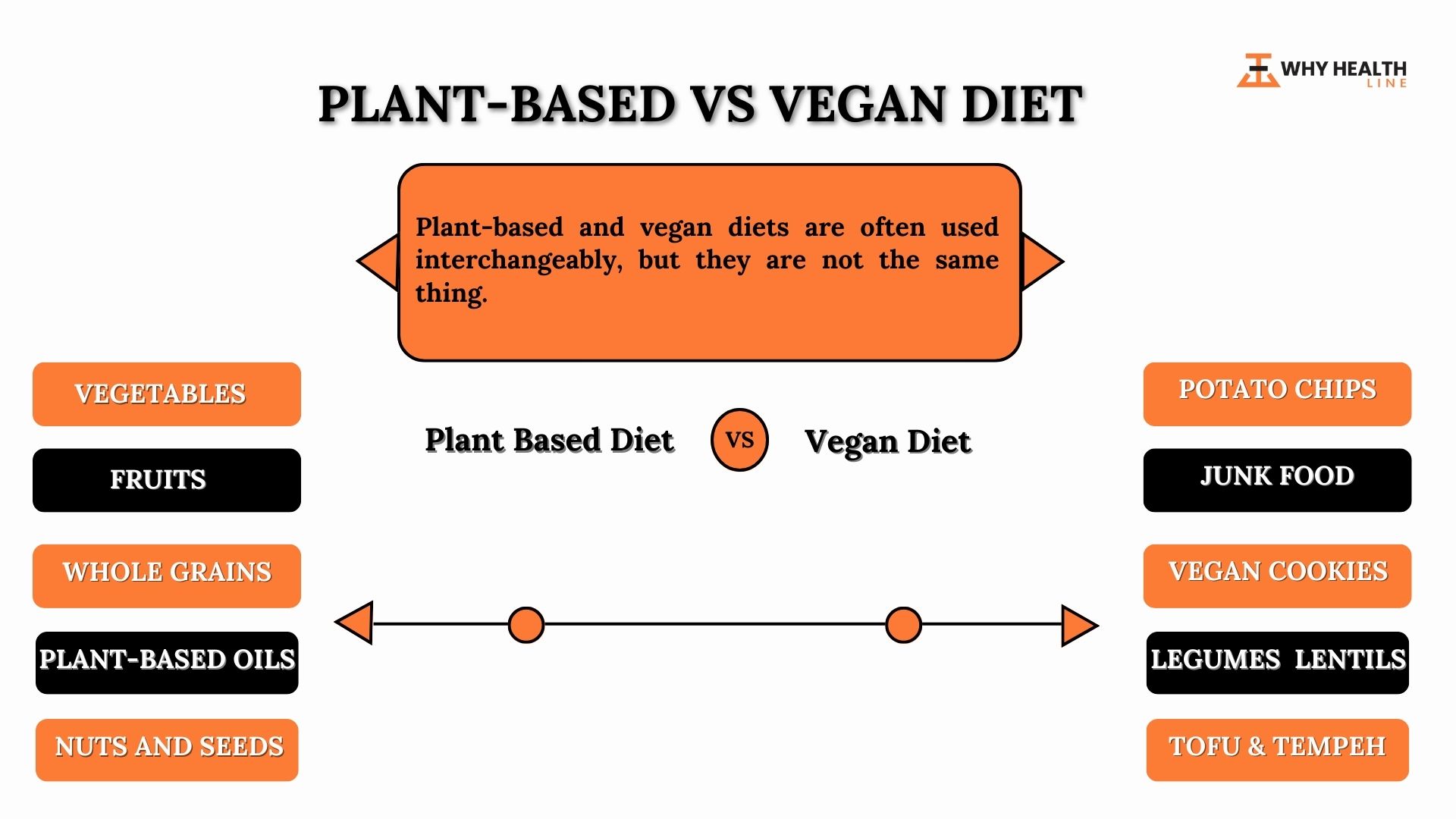Plant Based Vs Vegan diet has made headlines for their health benefits in recent years and while they are similar, there are some key differences: Vegan diets eliminate all animal products, while plant-based diets do not necessarily eliminate animal products, but focus on eating mostly plants, such as fruits, vegetables, nuts, seeds, and whole grains.
What is a Vegan Diet?
“With a vegan diet, you eliminate all animal products, including dairy, meat, poultry, fish, eggs, and honey,” says Christine Kirlew, M.D., an internal medicine physician at Piedmont.
Some people choose to follow a vegan diet for ethical, environmental, or health reasons. While going vegan can have health benefits, there are some pitfalls to avoid.
“Just because something is vegan doesn’t mean it’s healthy,” she says. Which can be high in calories and low in nutrients. I recommend sticking to whole foods as much as possible.”
A vegan diet includes:
- Potato chips
- Junk food
- Vegan cookies
What is a Plant-Based Diet?
“With a plant-based diet, you can decide whether or not you want to consume animal products, and the focus is on eating mostly foods that come from plant sources,” says Dr. Kirlew.
Plant-based diets also emphasize eating whole foods, meaning the food has undergone little – if any – processing and is as close to its natural state as possible.
Plant-based foods include:
- Vegetables
- Fruits
- Whole grains (quinoa, farro, barley, oatmeal)
- Plant-based oils (avocado, olive, canola)
- Nuts and seeds
What Is the Right Meal Plan for You?
“Regardless of what meal plan you choose, everyone’s diet should ideally consist of 50 percent vegetables,” says Dr. Kirlew. “Fruit is healthy too, but I like to focus on vegetables because they have less sugar.”
When building your plate, aim for:
- 50 percent vegetables
- 25 percent whole grains
- 25 percent lean protein
“If you are not eating meat or other animal proteins like eggs, try beans or quinoa for plant-based protein,” she says. “And if you want to have meat occasionally, stick to lean meat, fish, or poultry.”
Adding healthy fats – such as avocado oil when roasting veggies, a sprinkle of slivered almonds on your oatmeal, or sliced avocado on your salad – will help you feel full for longer. And healthy fats have numerous other health benefits.
When to Talk to Your Doctor About Your Diet
“It’s a good idea to see your primary care doctor get a basic framework for what a healthy diet should look like for you, particularly if you have an underlying health condition or have had weight loss surgery, which can affect how your body processes nutrients,” says Dr. Kirlew.
“For example, if you have diabetes and want to eat healthily, you wouldn’t necessarily want to eat a lot of fruit.”
Also, if you are vegan, vegetarian, or don’t eat many animal products, she recommends asking your doctor to check your vitamin B levels.
“B12 deficiency is common in vegans because it’s a nutrient found mostly in animal products,” she explains. “If you don’t consume many animal products, talk to your doctor about taking a supplement.”
Calcium is another important nutrient that can be hard to get when you don’t eat dairy products. Dr. Kirlew recommends trying calcium-fortified plant-based milk (like almond milk) or other calcium-fortified foods.
“If you’re not getting three servings of calcium-rich foods each day, ask your doctor about adding a supplement,” she says. “Try to get at least some calcium from your diet because taking too many calcium supplements can cause adverse side effects.”
Is a Vegan or Plant-Based Diet Healthy?
If you eat plenty of vegetables, fruits, healthy fats, and whole grains, you should still get a good chunk of your daily vitamins and minerals because plant-based foods are high in many nutrients.
FAQs
Is a Plant-Based Diet the Same as a Vegan?
In recent years, the health benefits of both meal plans have made headlines, but there are some key differences: Plant-based diets focus on eating mostly plants like fruits, vegetables, nuts, seeds, and whole grains, whereas vegan diets eliminate all animal products.
Which Is Healthier Vegan or Plant-Based?
However, the fact that a plant-based diet is regarded as healthier is another reason why it is common. And there’s a good reason for that.
When compared to diets high in meat and other animal products, plant-based diets have been linked to lower rates of heart disease, type 2 diabetes, and some cancers.
Can You Be Plant-Based but Not Vegan?
For a variety of reasons, some plant-based eaters may choose not to consume meat and animal products. A vegetarian diet does not include meat, poultry, fish, seafood, dairy, or eggs. A vegan diet does not include any meat or animal products at all.



